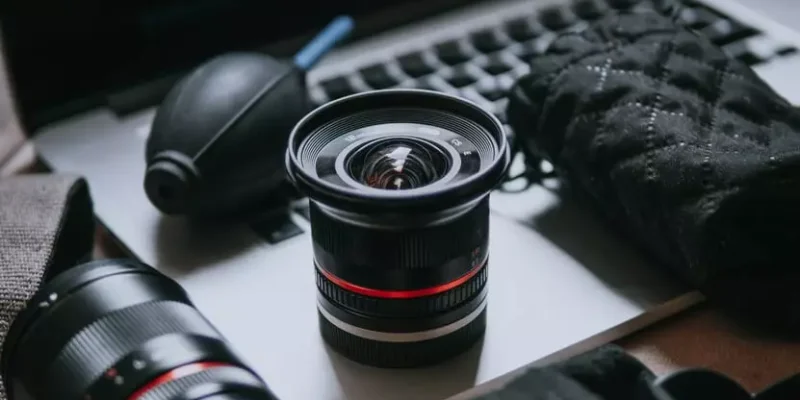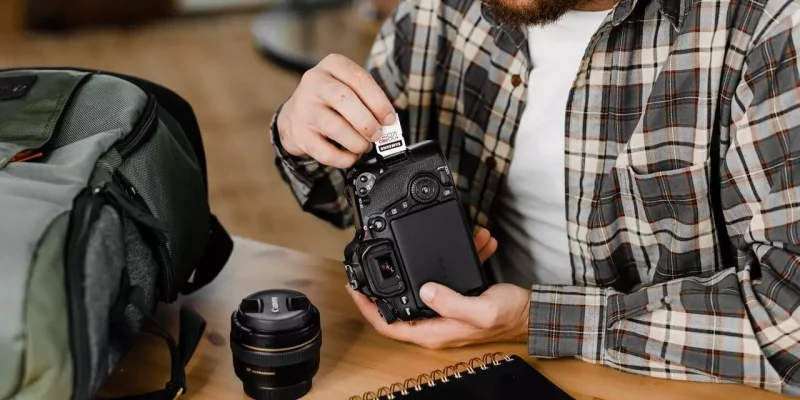My Nine Top Tips for Looking After Your Camera on the Road
Travel photography has become a huge part of my life. Over the years, my camera has been a constant companion, dragged through humid jungles, dusty deserts, chaotic cities, and everything in between.
And here’s what I’ve learned: taking care of your gear is just as important as learning how to use it.
Camera equipment isn’t cheap, far from it. It’s an investment. But more than that, it’s your passport to capturing the memories, stories, and beauty of the places you visit. The last thing you want is to miss a shot (or worse, kill your camera) because you didn’t take a few simple precautions.
After years of trial, error, and a few “oh no” moments, I’ve put together my top nine tips for keeping your camera safe, clean, and ready to shoot wherever your travels take you.

1. Get Yourself a Good Camera Bag
This one’s non-negotiable. A solid camera bag is one of the most important pieces of gear you’ll own, right up there with the camera itself.
If you’re anything like me and love heading off the beaten track, invest in a bag that’s water-resistant and dustproof. Sure, some cameras are built to handle a bit of rain or dirt, but it never hurts to double up on protection. Think of it like a raincoat for your camera.
I also recommend grabbing a waterproof cover or even chucking your camera bag into a dry bag (canoe bags are a personal favourite). You never know when you’ll find yourself crossing rivers, caught in monsoon rain, or wading through jungle streams, speaking from experience here.
Aside from the elements, a proper camera bag protects your gear from bumps, knocks, and the occasional small drop. Plus, it adds an extra layer of security against pickpockets… or curious monkeys who’d love nothing more than to run off with your lens cap.

Two: Cleaning Kit
This one’s simple but often overlooked, don’t forget your cleaning kit. You’d be surprised how many travellers I’ve met who’ve never cleaned their camera, either because they don’t know how or just never thought it was necessary. But a dusty lens or a smudged sensor can ruin a great shot, and worse, neglect can lead to damage over time.
A good cleaning kit won’t cost much compared to the rest of your gear, and it can go a long way in keeping your setup in top shape. Your kit should include:
A lens pen
A rocket blower (great for dislodging dust without touching anything)
Lens cleaning solution
A microfiber cloth
A soft brush for tougher spots
I also recommend getting a small, dedicated pouch or case to keep all your cleaning supplies together and clean. There’s nothing worse than reaching for your microfiber cloth and realising it’s been rolling around with your snacks and sunscreen.
Sensor cleaning is a whole other level. Some people swear by DIY sensor wipes, while others (myself included) prefer letting a professional handle it. It’s easy to scratch something you really, really don’t want to scratch. If you do fancy giving it a go, make sure you watch a proper guide or better yet, check out this blog post I’ve put together on how to safely clean your camera.

Your support through ads keeps our content free — we appreciate it!
3. Always Carry Spares (Because You Will Forget Something)
If there’s one thing travel has taught me, it’s that it’s always the little things that trip you up. I’ve dropped lens caps off cliffs, left memory cards in my laptop back at the hotel, and once showed up to a sunrise shoot with a fully dead battery. Not ideal.
That’s why carrying spares is a no-brainer. Here’s what I recommend:
Spare lens caps (at least one for each lens, especially if you’re clumsy like me)
Extra memory cards – I always carry a few, and rotate them throughout my trip
At least one extra battery – Ideally charged, obviously
There’s nothing more frustrating than reaching a perfect photo spot only to realise your card is full or your battery’s dead. Trust me, that pain lives rent-free in my memory. Just a few backups can save the day and your sanity.

4. Clean Your Gear (Yes, Even When You're Tired)
Look, I get it. When you’re travelling, it’s easy to get caught up in the moment, sunsets to chase, street food to eat, jungle hikes to survive. But your camera doesn’t care that you’re having fun. Dust, sand, humidity… they’re all silently trying to kill your gear.
That’s why I stick to a regular cleaning routine. Nothing extreme, just once a week, I take 30 minutes to wipe everything down. Camera body, lenses, tripod, the works. If I’ve been somewhere especially dusty or damp (think desert treks or jungle camping), I’ll give it a quicker clean the same day.
You don’t need to go full lab-tech about it. Just make it a habit. Your future self and your camera will thank you.
You may also be interested in: How to Take Better Travel Photos: 8 Tips for Capturing Stunning Images with Your Smartphone or Camera

5. Guard Your Stuff Like It's Your Firstborn
When I travel, my camera gear is basically an extension of my body. I’ve got two cameras, three lenses, a tripod, a gimbal, and a drone, all of which never leave my side. Seriously, if there were a loyalty program for lugging awkwardly shaped gear through airports, I’d be platinum.
And here’s why: camera gear and checked baggage don’t mix. The hold of a plane or the bottom of a bus is not your gear’s happy place. Even if it doesn’t get smashed to bits, there’s still the lovely possibility that your bag “disappears.” I’ve met a few travellers who’ve lost everything in transit and trust me, that’s not the kind of travel story you want to be telling.
Moral of the story? Keep your gear close and your snacks closer

6. Kit Breakdown (Not the Emotional Kind)
Sometimes, it’s best to give your gear a bit of personal space, especially when you’re on the move. No, I don’t mean dismantling your camera into tiny pieces like some sort of tech surgeon. I’m just talking about the basics: remove the lens, pop the caps on both ends, and keep everything snug and safe.
Why? Because bouncing down a jungle trail with your lens still mounted is a great way to mess up your mounting threads. And once those are gone, well… you’ve basically got yourself a very expensive paperweight with a viewfinder.
One quick word of warning, when taking your lens off or switching it out, make sure you’re not standing in a sandstorm or on a windy volcano. The tiniest speck of dust can sneak into your camera body and throw a party on your sensor.
Pack smart, switch smart, and your gear will love you back.

Your support through ads keeps our content free — we appreciate it!
Seven: A Bag With Purpose
Think of your camera bag as sacred ground, reserved strictly for your gear. It’s not a dumping ground for your spare keys, half-eaten snacks, or that mystery coin collection you’ve somehow accumulated along the way.
Using the padded dividers your bag came with isn’t just a nice idea, it’s the whole point. They’re like the bodyguards of your precious equipment, keeping your lenses, camera body, and other bits from knocking around and scratching each other like kids in the back seat of a long road trip.
Keep it organised, keep it intentional, and keep the granola bars somewhere else.
You may also be interested in: Equipment Advice for Epic Travel Photos

8. A Useful Insight (a.k.a. Don’t Throw Those Silica Packs Away)
You know those tiny little sachets that come with new shoes or electronics, the ones boldly telling you “DO NOT EAT” like that was even a real option? Well, don’t eat them, but definitely don’t toss them either.
Those little guys are actually silica gel packs, and they’re perfect for absorbing moisture. I always keep a couple stashed in my camera bag and another set in my drone case. They help combat the sneaky humidity that can build up in your gear, especially if you’re shooting in jungles, on boats, or sweating buckets in the tropics.
They won’t save your kit if you drop your bag in a river (been there), but for everyday moisture protection, they’re a no-brainer and they weigh basically nothing. Plus, they’re free. What’s not to love?

9. Stay Covered (No One Likes Surprise Expenses)
Let’s be honest, camera gear isn’t cheap. So if you’re dragging thousands of dollars’ worth of equipment through jungles, deserts, and chaotic city streets, do yourself a favour and get insurance.
Some travel insurance plans include gear coverage, but be careful many cap the payout at something like $500. That might barely cover your phone, let alone your camera, lenses, or drone. So dig into the details. You want a policy that covers the actual value of your equipment and theft, damage, and mysterious disappearances (yes, looking at you, “lost” luggage).
And whatever you do, keep your receipts. Store them somewhere safe, digital copies in the cloud are your best friend. That way, if disaster does strike, you’re not stuck trying to convince someone your camera was worth more than their car.

All pictures sourced from pixabay.
Final Thoughts
Remember, your DSLR or mirrorless camera isn’t just for Christmas, it’s for life (or at least until your next upgrade). It’s a serious investment and, if looked after properly, one that will reward you time and time again. In fact, if you treat your camera better than you treat yourself, you probably won’t go far wrong.
And here’s the bonus: when the time comes to upgrade, the better condition your gear is in, the higher the resale value. A little care now means more cash later and fewer headaches along the way. So keep it clean, keep it safe, and keep shooting.
Your support through ads keeps our content free — we appreciate it!
Table of Contents
You might also be interested in:
You might also be interested in:
Hey there, ¡Bienvenido!
Thank you so much for being here.

I’m Matthew Lock
An internationally exhibited and published photographer.
Follow me in Social Media!
Your feedback means a lot!
Leave a Review
If you’d like to show a little extra support, you can also
Get In Touch
When you purchase through certain links on my site, I may receive a small commission —at no extra cost to you— which helps keep my work going strong.
Explore More Categories
Where I have been:
Currently in: Australia












